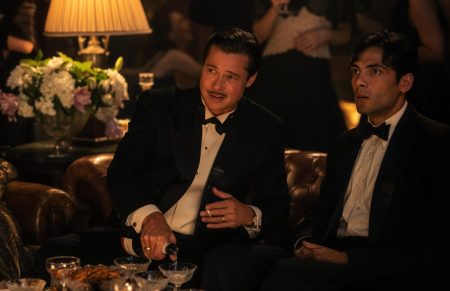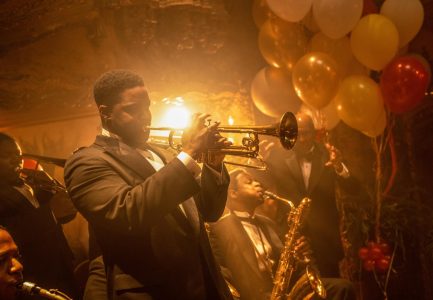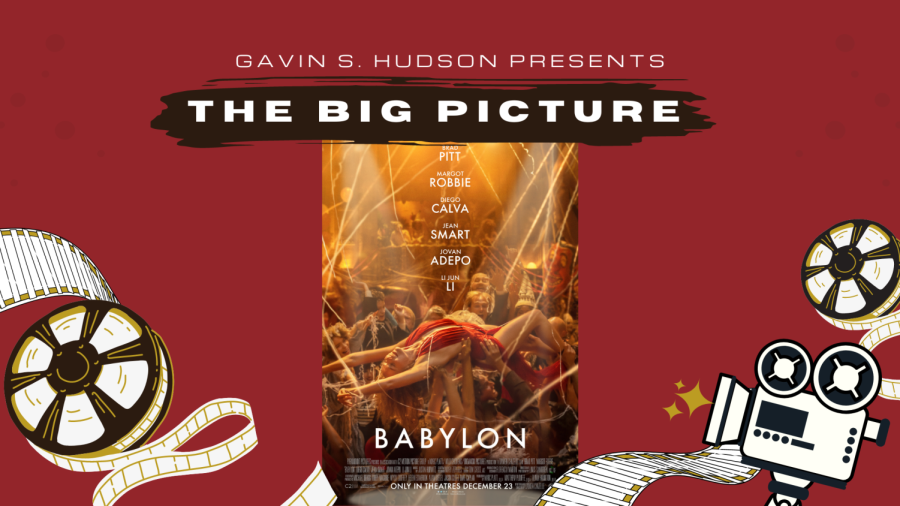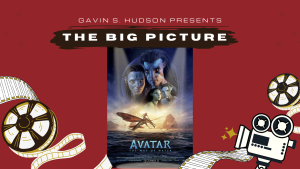The Big Picture – Babylon
Graphic created in Canva by Dominique Williams and Gavin S. Hudson. Movie posters courtesy of Paramount Pictures.
December 31, 2022
Disclaimer: Light spoilers for the film are included in this review.
The saddest thing I’ve seen in film all year is that this movie is currently bombing at the box office.
Though cinema can be hard to define, to me, it’s a moment where story, music and emotion come together to create a feeling of complete immersion.
Damian Chazelle’s “Babylon” uses its three-hour runtime to paint the picture of cinema. Set to a snappy jazz soundtrack, Chazelle invites the viewer to experience the magic of the earliest age of film while diving into the dark side of the big screen.
The dawn of the history of film was filled with wild experimentation, technological breakthroughs and the creation of celebrity. The movie nails the chaotic nature of the era and perfectly captures the rollercoaster known as Hollywood.
The performances by Diego Calva, Margot Robbie and Brad Pitt all stand out in their respective roles: Calva as the fast advancing executive, Robbie as the next big thing in Hollywood and Pitt as the star burning out.
The three capture so much raw emotion from the fast life their characters have yearned for and leave little doubt about their stardom. While Calva is what the film considered a discoverable, he demonstrates such a range in “Babylon” that leaves me hoping to see him get additional high caliber work.

If Chazelle’s previous work like “Whiplash” or “La La Land” weren’t proof enough, “Babylon” is sure fire proof that jazz can add so much to a film. With the roaring twenties as setting, jazz is needed; but Chazelle goes above and beyond, making sure it’s deserved with loud horns, thundering drums and a tempo that makes my heart race.
Some moments tend to drag a bit. The emotional investment those moments build make these a footnote more than a necessary complaint.
“Babylon” is an incredible statement on what film truly means to people — a medium that’s evolved past a general distraction from the unpleasant world around us to become one of the most viable ways to bring people into a story.
Conrad’s (played by Pitt) monologue on how important film is to everyday people goes into that point in the most pretentious yet accurate way. With film and technology rapidly advancing, he sees the importance of bringing the viewer elsewhere, washing away their worries with the magic on screen.

I’ll keep spoilers out of it, but the ending sequence brought me to tears. As a complete nerd who’s been significantly impacted by movies all of my life, seeing this beautifully illustrated painting I’ve never been able to articulate come to life before my eyes stands as a testament to why film is one of mankind’s greatest achievements.
If you plan on seeing a three hour long movie within the next few weeks, give it a shot. I give “Babylon” a more than deserved 9/10.



































































































































